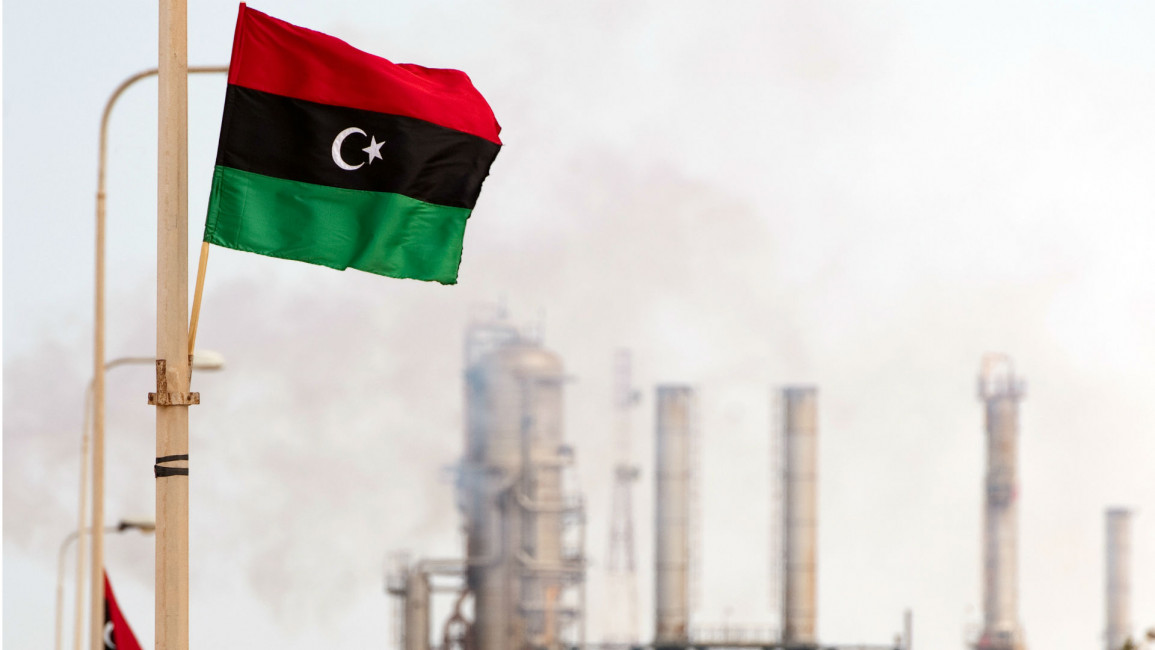Libyan oil company forced to shut down refinery after Haftar blockades oil facilities
In its statement on Monday, the NOC said the shuttering took place on Saturday due to a valve closure on a main pipeline between the Sharara oilfield and the Zawiya refinery.
"This is developing into a true national crisis," NOC chairman Mustafa Sanalla is quoted as saying in the statement.
"Immediate action is needed to end this irresponsible blockade," he added.
In a Sunday statement on its website, the Zawiya refinery, an NOC subsidiary, said it had to halt its operations due to a lack of crude supplies from oilfields.
Read also: Libya has been flooded with mercenaries and private military companies
A source at the refinery told Reuters two refining units with a capacity of 60,000 barrels each had stopped.
Twitter Post
|
The NOC stated that the refinery's monthly production included 120,000 metric tons of diesel, 49,000 tons of gasoline, 120,000 tons of fuel oil, 6,000 tons of liquid petroleum gas and 90,000 tons of jet fuel.
Groups allied to militia commander Khalifa Haftar launched their blockade of eastern Libya's main oil terminals on 18 January, AFP reported on Wednesday.
According to an update on the NOC website posted last week, production has since declined from "more than 1.2 million to 187,000 barrels a day", a fall of more than 80 percent.
Earlier this month, media reports confirmed the blockade has cost oil-rich Libya around $1 billion in revenue.
The blockade started the day before an international summit in Berlin started, which called for an end to foreign interference in Libya's conflict and a resumption of peace efforts.
The ensuing cuts in production due to storage capacity problems has caused "losses estimated at $931 million", the NOC said.
Exports were suspended at the ports of Brega, Ras Lanouf, Al-Sidra, Al-Hariga and Zweitina in the country's "oil crescent", the conduit for the majority of Libya's crude exports.
The blockade of the country's main source of revenues was a protest against Turkey's dispatch of troops to shore up support for Haftar's rivals.
Turkey has backed the Tripoli-based Government of National Accord, while Haftar has support from Russia, the UAE and Egypt.
Libya has been mired in chaos since a 2011 overthrow of longtime dictator Muammar Gaddafi, with rival administrations and militias vying for power.
The conflict deepened last April when Haftar, whose forces control much of Libya's south and east, launched an assault to seize Tripoli.
The embassies of the US and the UK, as well as the EU delegation in Libya, called for a resumption of NOC operations, warning of the risks of exacerbating the humanitarian hardships facing the country.


![President Pezeshkian has denounced Israel's attacks on Lebanon [Getty]](/sites/default/files/styles/image_684x385/public/2173482924.jpeg?h=a5f2f23a&itok=q3evVtko)



 Follow the Middle East's top stories in English at The New Arab on Google News
Follow the Middle East's top stories in English at The New Arab on Google News


